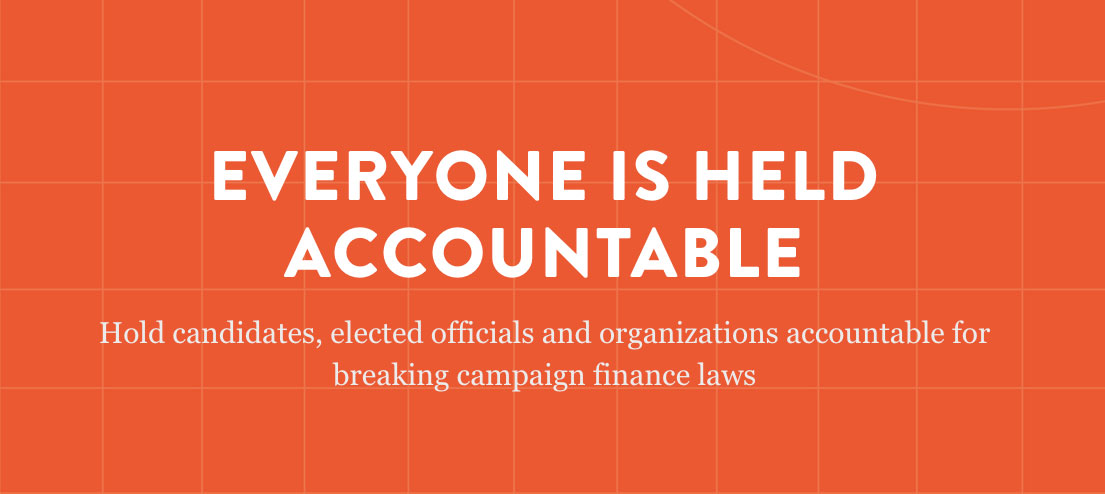Among the many solutions that could be enacted today without a constitutional amendment, perhaps one of the most important is an overhaul of the notoriously dysfunctional Federal Election Commission. Charged with enforcing existing campaign finance rules, this agency is so gridlocked by partisan politics that commissioners not only have failed to prevent super PACs and other outside spenders from dominating elections, but once couldn’t even come to a consensus on whether to serve bagels or donuts at an event.
That’s why Issue One gladly joined other leading reform groups to endorse a new bill introduced in the Senate by Tom Udall (D-NM), the Federal Election Administration Act. If passed, it would abolish the broken FEC and replace it with a new independent agency free of the structural issues that have plagued the nation’s top watchdog for years. Here’s what we mean:
No more deadlocked votes
- FEC: 6 commissioners, split between the parties, resulting in constant 3-3 votes along party lines.
- FEA: 5 members, including one Chairman, with broad powers to manage the agency.
No more weak punishments
- FEC: Cannot actually impose penalties or sanctions; instead, must reach an agreement with the alleged violator or file a lawsuit.
- FEA: In line with most other regulatory agencies, can rule that violations of the law have occurred and impose penalties, subject to an appeal.
No more inadequate agency budgets
- FEC: Because the Office of Management and Budget determines the FEC budget, a reform-hostile president can hamstring the agency by submitting inadequate budgets to Congress.
- FEA: The FEA Chairman submits budget requests directly to Congress, ensuring the agency is able to request exactly what it needs to uphold and enforce the law.
No more hiding in the shadows
- FEC: Not authorized to conduct random audits of political spenders, meaning it can only investigate once a violation has already occurred.
- FEA: Can conduct a limited number of random audits of campaign committees, ensuring potential rule-breakers comply with the law or risk an audit.
FEC reform has been a priority for many members from both parties, and Udall’s new bill is modeled after previous bipartisan legislation introduced by Senators John McCain (R-AZ) and Russ Feingold (D-WI). And he’s got company: similar bipartisan legislation was introduced last June in the House by Rep. Derek Kilmer (D-WA) and Rep. Jim Renacci (R-OH)
This is a common-sense proposal that anyone can get behind: if we’re spending taxpayer dollars to run an agency that protects our democracy, that agency should be as high-functioning as possible. Issue One will keep you updated on the progress of this bill, and others that will ensure our government works for everyone.


 (Everyone Is Held Accountable)
(Everyone Is Held Accountable)
